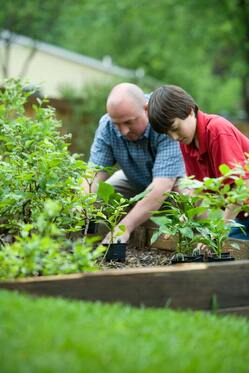 On Thursday morning, California’s Governor Newsom announced that the state’s schools should expect to stay closed for the remainder of the school year. This is not surprising, but so far we’ve been measuring this crisis in weeks and now we’re measuring it in months, making decisions about things that won’t happen until May or June. Many of my students are disappointed – especially the seniors – but I’m continually impressed by how flexible and positive they’re being about everything. Now that we have some clarity about how the rest of the school year will unfold, we’re turning our attention to summer. Many colleges have adjusted their on-campus sessions and are working to move them online. But some camps and programs have been canceled altogther (it’s hard to teach horseback riding online…). So with everyone’s summer plans in flux, we’re starting to work on Plan B. In that spirit, I wanted to share five things you can do this summer – safely, from home – in lieu of summer camps, academic programs, and part-time jobs. 1. Reconnect with your love of reading. Set a goal for yourself: read one book a week, or work through a list of the best books written by women of color, or pick a crowd-pleaser and start a virtual book club with your friends. And don’t just take it from me. Last week, Tulane’s director of admission, Jeff Schiffman, wrote, “Listen, if you include on your Common Application activities section a list of all the books you read for pleasure during your social distancing, I’ll love it.” 2. Pick up a new hobby. I’ve recently become obsessed with The New York Times Spelling Bee game. I work on it a little bit throughout the day and then compare answers with my family. I’ve even worked on it virtually with friends. Try something new (or something you used to love) that you didn’t previously have time for, and then find a way to share it with other people either in your home or online. 3. Cook something delicious. Now that making all our own food is the hot, new culinary craze, we have a choice: we can make something delicious, or we can get by. Many of my students have started taking over cooking duties at home one or two nights a week. And now they’re starting to post pictures and share favorite recipes online. Some of my other students have taken up gardening, planting vegetables and herbs that their families can use later this year. 4. Do something for other people. Last week, I was surprised to hear the sound of a lawnmower outside my front door. But when I looked out the window, it wasn’t our usual gardening crew – it was my neighbor. She had dragged her lawnmower out of her garage and mowed all the lawns on our side of the street. So if you have a lawnmower, mow your neighbors’ lawns. If you have a sewing machine, make masks for people. If you’re great at US history, organize a study group for the AP test. 5. Say thank you. One of my colleagues’ fathers is an ICU pulmonologist in Brooklyn, one of the hardest-hit areas of the country. He shared that many of the people he works with in the ICU are risking their lives for much less pay and support. He suggested sending thank you cards from across the country to show our appreciation. Immediately, 40 of my colleagues raised their hands to participate, adding that maybe we could chip in and buy them dinner as well. Another one of my colleagues suggested organizing our students to send cards too. And this is just one hospital. There are thousands of hospitals in the US facing similar challenges, and this is something small we can all do to show our appreciation. So pick a hospital and send a thank you card, or get all your family members to send cards, or organize your volleyball team to send cards. Do something, even something small, to show your appreciation. College admissions is a subjective process, executed by real people. Just as students are acclimating to a new normal, so are the people who work for the colleges you'll be applying to this fall. They will understand why your Common Application activities section is full of personal projects and self-assigned activities. They will understand why your junior year transcript suddenly became pass/fail. They will understand why you're not submitting SAT scores. And they will evaluate your application accordingly. The goal of all these suggestions is to help you stay engaged, mentally and emotionally, during this time of upheaval. The goal is to help you stay connected to the people around you, in your home and your neighborhood, and online. The side effect is having something to put on your college applications. The side effect is having something interesting to write your college essays about. Take care of yourself and the people around you, and everything else will fall in line.
0 Comments
Leave a Reply. |
What is the When I Was 17 Project?When I Was 17 is a blog series dedicated to collecting the varied stories of people's career paths, what they envisioned themselves doing when they were teenagers and how that evolved over the course of their lives. I started this project with the goal of illustrating that it's okay not to know exactly what you want to do when you're 17; many successful people didn't, and these are a few of their stories.
Archives
October 2020
|